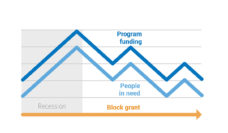The U.S. House did something that just a few days ago I was skeptical would happen—pass legislation repealing Obamacare. Well, they passed more than 50 repeal bills between 2010 and 2016, but none of those had a chance to become law. The issue on everyone’s mind now is what the Senate will do. Here are my thoughts on eight key questions:
1) How many votes are needed to pass legislation in the Senate? Usually 60, but Republicans are trying to use a special process called reconciliation that allows them to pass a law with a straight majority of 51. Democrats can’t criticize because this is how they passed Obamacare in 2010. For reasons that are too complex for me to get into here but that are explained very well by Andrew Prokop of Vox, this option of passing Obamacare repeal with 51 votes won’t last forever. Republicans will need to get this done sooner rather than later if they want to move on to tax reform and other issues.
2) Republicans have 52 seats in the Senate. Does that mean they have enough votes to pass the law that just passed the House? Probably not. Every concession given to conservatives in the House makes it harder for moderate Senators to vote yes. There are only two votes to spare, so the margin is really tight. Key Republicans have made it clear they aren’t just going to take the House bill as is. Take for example Lindsey Graham (R-SC) who said that “any bill that has been posted less than 24 hours…needs to be viewed with suspicion.”
3) Does that mean Obamacare will likely survive and the Republican plan will be a failure? Not necessarily. I have heard/read a lot of liberals in the last 24 hours console themselves by saying the Senate will never go for the AHCA. While probably true, that’s not the point. I think the main goal for House Republicans was to pass something conservative enough to appease their base and to say they have done their part to fulfill seven years of promises to repeal Obamacare. Now if it doesn’t become law they can blame the Senate. In fact, Senate inaction might be their best case scenario.
4) What happens if the Senate passes something different from the House Bill? Leadership from each chamber would appoint legislators to serve on a special ad hoc conference committee to hash out a compromise between the bills passed by each chamber. The negotiations would be intense but would happen behind closed doors rather than in public or on C-SPAN. That new compromise bill would then go back to each chamber for a vote.
5) Wouldn’t that conference committee bill die in the House for not being conservative enough? Supporters of the ACA shouldn’t put all their hope in the idea that the positions of the far right in the House are irreconcilable with the moderates in the House and Senate. The conference committee bill likely wouldn’t have everything the House Freedom Caucus wants or fought to have included in the AHCA. But at that point they will already be on record voting for the more conservative bill and so might be more willing to compromise. In fact, if we get to this point I expect House conservatives to make some surprising concessions, sort of like that House Democrats were willing to accept in 2010 when the choice was between passing the Senate bill or nothing.
I watch my students face this calculation every year during our simulation at the Edward M. Kennedy Institute on the U.S. Senate (an amazing place by the way – everyone should go). The final choice facing my students is whether to let a few things they don’t like stop them from voting to pass a bill they sort of like. Each year I am amazed at the compromises they are willing to accept to get a win and secure their “legacy” of having passed something – anything!
6) Who will be given credit/blamed for the effects of the AHCA? This bill is so incredibly unpopular it’s hard to imagine anyone wanting credit. None of the major stakeholders on health care support the bill, including groups that have historically played a major role such as the American Medical Association (AMA). A poll in March found that only 17% of Americans liked the AHCA. House Republicans think so little of the bill they passed yesterday that they exempted themselves from being affected by any of its provisions. But they think they will be able to avoid being blamed for increased premiums and decreases in coverage because of how the bill is structured. State flexibility on Medicaid financing and essential health benefits means that the really hard choices on cutting eligibility and benefits will have to be made by state leaders.
7) What does all this mean for the midterm elections in 2018? You should have seen the disappointed look on the faces of my students when I showed them the 2018 Senate electoral map. Democrats only need a net gain of 3 seats but there are so few opportunities that it’s hard to imagine this happening, regardless of how the health reform debate plays out. The left is feeling renewed excitement about the House after a strong showing in a special election for an Atlanta seat previously held by Tom Price and Newt Gingrich. Republicans have an advantage that many districts are blatantly gerry-mandered and in many cases Democrats are too concentrated in urban centers. But Democrats are targeting the handful of Republicans who voted for the AHCA even though they live in districts won by Hillary Clinton in 2016. I don’t think Democrats will win back the House, but they might be able to make up important ground and narrow the margin.
8) What about the 2020 elections? OK, I haven’t heard much talk about 2020, but there should be. This is a census year in which the congressional maps are redrawn. Winning big in 2010 is a major reason Republicans have dominated the House and state legislatures over the last decade. Liberals will be hoping for a similar effect in 2020 and will be heavily motivated to stop Donald Trump’s second term. Health reform will be one of their major selling points. The effects will likely spill down-ballot. Republicans voting for the AHCA could survive 2018 but still be heavily vulnerable in 2020.
I’m not sure where that leaves us, but it’s going to be a fascinating summer in the Senate.
Feature image: Taken by author at the Edward M. Kennedy Institute for the U.S. Senate













